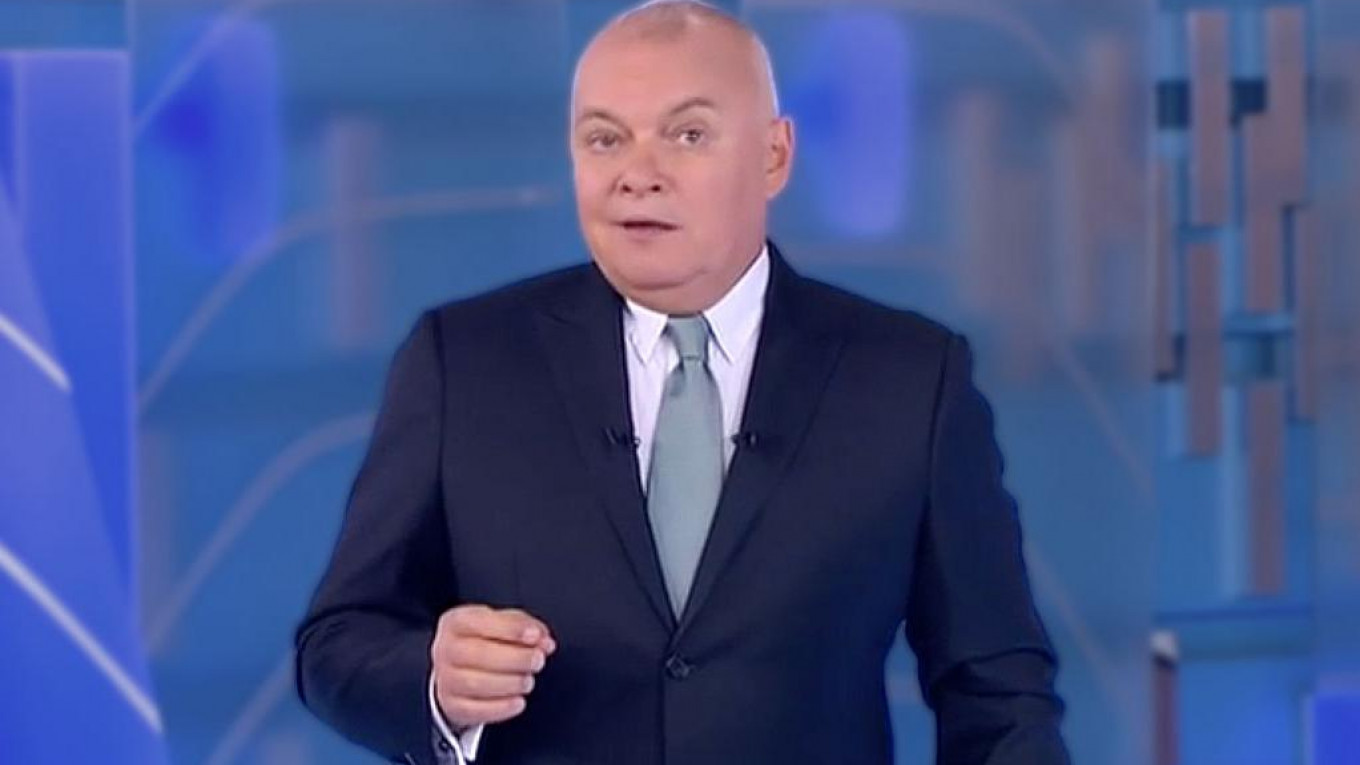“If Moscow summoned the Hungarian ambassador every time the Hungarian media mentioned Russia, he’d wear out his shoes in no time.” That was Dmitry Kiselyov’s response after learning that Hungary’s Foreign Ministry called the Russian ambassador over remarks Kiselyov made on his TV show last weekend, when he called Hungary’s 1956 Anti-Soviet Uprising a “pogrom” and implied that Western intelligence agencies steered the revolt toward violence.
“This is my show, where I express my opinions in line with the principles of free speech. On this show, we present stories as they’re told by eyewitnesses and participants from both sides, without endorsing one or the other,” Kiselyov told the news agency RIA Novosti.
Hungary is currently honoring the 60th anniversary of a brief but bloody uprising in 1956, when more than 2,500 Hungarians and roughly 700 Soviet troops fought and died in a failed effort to escape Moscow’s influence. It was the first major threat to Soviet control following the end of the Second World War, prompting more than 200,000 Hungarians to flee their country.
In a broadcast on October 23, Dmitry Kiselyov introduced the anniversary by suggesting that Western spies exploited Eastern Europeans’ “thirst for change” by transforming Hungarians’ “initially peaceful protests” into “bloody chaos,” seemingly erasing the Soviet Union’s responsibility for the violence. “Perhaps it was here in Hungary that the first-ever ‘color’ revolution took place in a country friendly to us [Russia]?” Kiselyov asked his audience.
On his show last Sunday, Kiselyov, who’s known around the world as the Kremlin’s “chief propagandist,” basically described the Hungarian Revolt in the same terms he’s used to criticize Ukraine’s Maidan Revolution, arguing that the United States and Europe radicalized a small group of protesters with legitimate but limited grievances, but got in over their heads and eventually abandoned the regime-change effort in favor of different foreign adventures.
“The U.S. and Western Europe weren’t up to dealing with Hungary in those days,” Kiselyov explained. “The world headlines back then were about the Suez Crisis,” he said, apparently signaling to Russia’s once-“friendly” neighbors that only Moscow wouldn’t forget them.
A Message from The Moscow Times:
Dear readers,
We are facing unprecedented challenges. Russia's Prosecutor General's Office has designated The Moscow Times as an "undesirable" organization, criminalizing our work and putting our staff at risk of prosecution. This follows our earlier unjust labeling as a "foreign agent."
These actions are direct attempts to silence independent journalism in Russia. The authorities claim our work "discredits the decisions of the Russian leadership." We see things differently: we strive to provide accurate, unbiased reporting on Russia.
We, the journalists of The Moscow Times, refuse to be silenced. But to continue our work, we need your help.
Your support, no matter how small, makes a world of difference. If you can, please support us monthly starting from just $2. It's quick to set up, and every contribution makes a significant impact.
By supporting The Moscow Times, you're defending open, independent journalism in the face of repression. Thank you for standing with us.
Remind me later.






